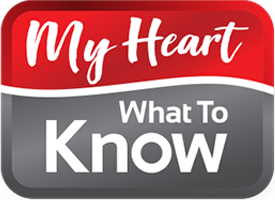By Madeleine Ortiz
STRESS. We see, hear and feel this word all the time… and according to health psychologist Dr. Michael Vallis, it’s contributing to weight gain, heart disease and overall less self care. Though it might not be avoidable, it is manageable, and stress management techniques, says Dr. Vallis, should be a fundamental part of your health care and self care tool box.
For many, the idea of stress management can feel daunting, but Dr. Vallis breaks down healthy and effective coping strategies into five simple categories. There isn’t one perfect solution for managing stress- choose a few techniques or try different combinations of strategies until you find a formula for stress management that best works for you.
1) Get physical!
Dr. Vallis’s first technique is physical discharge, which can be simply defined as “burning stress off.” Stress can make us feel physically tense, and letting that feeling bottle up inside of you can often make the stress worse. Physical discharge allows you to shake off some of that tension and let your body, and subsequently your mind, relax a little bit. And the good news is that Dr. Vallis promises you don’t have to be a marathon runner or yoga expert to reap the stress-relieving benefits. He suggests taking a walk, vacuuming your house or dancing around to your favorite song as very valid options. Short on time? Dr. Vallis encourages micro-moments of physical discharge throughout your day – like choosing to take the stairs instead of the elevator or doing ten jumping jacks before diving back into your to do list.
2) Calm your body.
Physical calming is similar to physical discharge because it helps you release tension associated with stress. Physical calming, however, uses calm, quiet and peaceful moments to allow yourself to settle. Dr. Vallis recommends trying meditation, tai-chi or even cuddling your pet for a few minutes to help you relax. And just like with physical discharge, physical calming doesn’t have to happen in big segments- Dr. Vallis says finding 30 – 60 seconds calming breaks throughout your day can lower your stress levels. You might try taking 10 slow breaths after brushing or teeth or incorporating an easy breathing exercise whenever you stop at a red light. Every little bit makes a difference.
3) Express yourself.
Sometimes, saying something out loud can make it seem less scary- and that’s the idea behind emotional expression. Dr. Vallis encourages writing in a journal about what is creating stress for you in your day or just venting through frustrations with a supportive and empathetic friends. Don’t make it too complicated, Dr. Vallis suggests, emotional expression isn’t about complaining or even finding solutions.It’s just a way to air out your feelings, get some perspective and give less power to the things that are adding stress to your life.
4) Accept your feelings.
Emotional acceptance, according to Dr. Vallis, is the idea that you just observe yourself and realize that it’s OK to be experiencing whatever emotion it is that you are feeling. If you’ve lost something and you’re sad, that’s OK because being sad is the normal response to a loss. If someone has hurt you and you feel angry – that’s a normal response too. Emotional acceptance works down to even the smallest emotions – realizing it’s normal to feel annoyed if we got double charged for something at the supermarket and now have to go back to get our refund. What emotional acceptance is not, Dr. Vallis states, is self-pity or an easy way out. He says it is actually one of the most difficult stress management strategies to implement because it requires more self-acceptance than most of us are used to giving ourselves. Don’t let the difficulty deter you from giving emotional acceptance a try though – it’s also one of the most effective techniques for a happier life. It allows you to see things for how they are without judgment, which in turns allows you to let go, move on, or find a solution more quickly.
5) Get support!
For hundreds of years, humans have relied on community for survival, but in recent times we’ve shifted away from asking others for help. Dr. Vallis suggests that you stop trying to do everything on your own. “We are social creatures,” he says, “find ways to reach out to others.” Seeking help when you need it isn’t selfish; in many cases, it fosters connection and eases stress for both parties, even the person doing the assisting. Everyone benefits when you ask for help. So call a friend, have a chat and feel your stress start to melt away.
Stress is a part of life. It’s not avoidable, but with practice and some of the techniques from Dr. Vallis you can spend less time stressing and more time focusing on your health and self-care.
—
An important step towards better health for many people is reaching a healthier weight, which can reduce the risk of cardiovascular disease. To find a physician near you who specializes in weight management, click here.
—
All the information provided on this site is for educational purposes only and is not a substitute for professional medical advice, diagnosis, or treatment. My Heart – What To Know is not a healthcare provider or clinic. ALWAYS consult with a qualified healthcare provider regarding any questions you may have about a medical condition. Never disregard professional medical advice or delay in seeking it because of something you have read on this website. If you think you may have a medical emergency, call 911 or go to the nearest emergency room immediately. No physician-patient relationship is created by this website or its use.
This article was sponsored by Novo Nordisk Canada. All content is created independently by My Heart – What To Know with no influence from Novo Nordisk.

